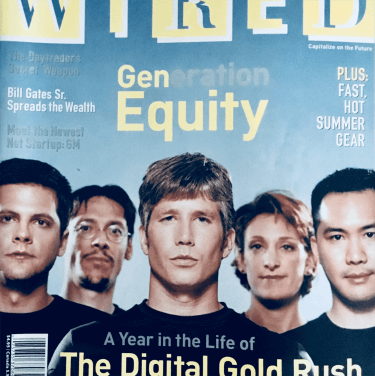Right now, corporations run two sets of books, in a sense. One uses the traditional financial measuring sticks required by investors — i.e., owners. The second uses the neotraditional KPIs that quantify the customer — repeat visits, customer acquisition costs, click-through rates, mileage points, scrolling behavior metrics, net promoter scores, even emotional microexpression readings. In theory, the second informs the first, and maybe it’s fair to say the second set of books drives growth, while the first set of books pegs margin. “Our customers are our evangelists,” is the common wisdom. “They’re our best salespeople.”
And no doubt, we are entering an era where alternative currencies are expected to hybridize into real currency as the next generation takes over. I’m not talking crypto necessarily — the same way I swapped lunches at school as a child, the next generation was raised to think very flexibly about what constitutes cabbage. The currency of mid-childhood is “screen time,” dispensed by parents in moderation much like the Federal Reserve sells T-bills to loosen the money supply. Monthly data limits are the currency of pre-teens; so are Spotify Premium logins, and HBO passwords. Video game “coins” and barely-worn sneakers convert to cash in secondary online markets. In microtransaction tipping, they’re inventing the mother of all exchange rates, the normative value, in dollars, of human actions that make us feel good.
It’s only a slight logical leap to imagine an economic model evolving that blends the customer and the owner into a single set of books. A 3-dimensional P/L. Where the customer and the owner are on a single spectrum, with many who are both.
Gen Z is doing more than killing cash. Gen Z is killing malls. They’re killing magazines. They’re not just going to kill cable bundling — they’re going to kill the very concept of a television channel. They don’t want the channel, they just want the show. They’re way smarter and more resourceful than any anthropologist gives them credit for. I don’t see them blindly getting into driverless Ubers, without some serious investigation into where the jobs will come from. I don’t see them blindly giving Jeff Bezos every penny, on the hope he’s going to give them a monthly stipend of Amazon Bucks if they run out. The reckoning is coming; policies and standards for labor displacement need to be in place.


